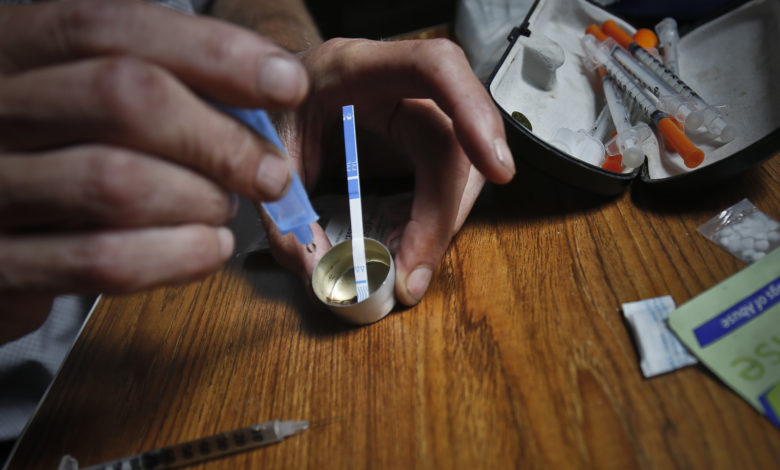Fayetteville woman distributes fentanyl test strips despite it being illegal

A woman from Arkansas continued to distribute fentanyl test strips, despite the product being technically illegal in the state, to honor her brother who died from an overdose.
Brittany Kelly has given away thousands of test strips around the Fayetteville, Arkansas, community. As a co-founder of the Matt Adams Foundation for Opioid Recovery, a Fayetteville nonprofit that focuses on distributing naloxone opioid overdose reversal kits throughout the community, she does the work to honor her brother who died over an accidental overdose in 2017.
The nonprofit co-founder said her brother was alone after several years of sobriety when he overdosed with nobody there to administer a naloxone kit, which can temporarily reverse an opioid overdose. Now, her foundation has distributed over 6,000 such kits in the Fayetteville community, something she hopes will help save people from a potential fatal overdose. Kelly also offers people fentanyl test strips, which can test other drugs for the presence of the lethal opioid. According to the foundation’s website, the organization has distributed over 10,000 such kits in the community.
Kelly believes the strips can help save lives amid a surge in fentanyl-related overdoses in recent years, sometimes driven by the use of other drugs that are laced with fentanyl.
“An increase in illicit pills containing fentanyl points to a new and increasingly dangerous period in the United States,” Nora D. Volkow, the director of the drug abuse institute said. “Pills are often taken or snorted by people who are more naive to drug use and who have lower tolerances. When a pill is contaminated with fentanyl, as is now often the case, poisoning can easily occur.”
However, distributing the test strips comes with risks, with Washington County Prosecuting Attorney Matt Durrett saying the tests are considered drug paraphernalia and that being in possession of them can lead to felony charges. The Fayetteville area has seen a surge in fentanyl-related overdoses in recent years, with Capt. Brad Renfro, of the Fayetteville Police Department, saying that the department prioritizes ridding the streets of drugs and not the fentanyl test strips distributed by Kelly’s organization.
“It’s technically illegal, but it’s not something we prioritize,” Renfro said. “We’re more interested in the people who are selling the drugs themselves.”
Kelly said she is aware that what she is doing is technically illegal, but insisted the tests can save lives and should not be banned. She plans to lobby the state’s legislature to change the law during next year’s session.
Arkansas is not alone in banning the strips, with about half of the states across the country having similar laws in place.
However, efforts like Kelly’s to reform such laws have succeeded in recent years, with the state legislatures in Georgia, New Mexico, Wisconsin, Tennessee and Alabama passing legislation to allow fentanyl test strips.
In the meantime, Kelly does not have plans to stop distributing the tests.
“I know that what I’m doing is helping them right now,” said Kelly.



